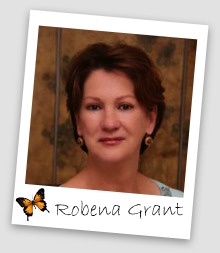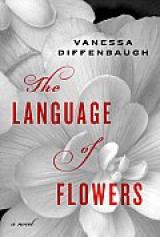 ~ By Robina Grant
~ By Robina Grant
Thank you for inviting me to share a wonderful read. The novel, The Language of Flowers, by Vanessa Diffenbaugh, touched me in so many ways. Not a romance, not quite YA, not really magical realism but with elements of all three. It was a glimpse into the foster care system and how that experience can color a youngster’s life forever. The story was for me a deep insight into what it means to have family, to be able to give and receive love, trust, forgiveness, and to embrace second chances.
Victoria is eighteen when the story opens and she is about to be emancipated by the state. She has spent her whole life in the foster care system and only once, at the age of ten, came close to adoption. She has definite self-sabotage issues and tends to withdraw, to run whenever she gets too close to overwhelming feelings that she doesn’t understand. Unconditional love is the one she has the most difficulty with, and she carries the burden of her upbringing as seen in her anger, guilt, and the overriding question of is she even capable of love.
The story is told with a strong narrative voice and the chapters alternate between Victoria’s past, as a ten year old, and her present, as an eighteen year old, and the transitions between the chapters are written with ease. In Victoria’s present situation she has three months to find a job. She chooses not to and lives for a while, homeless and sleeping in a park, where she grows and tends to plants. Later she finds work in a florist shop. In her past she sabotaged her adoption by telling a lie and has been running from her guilt ever since. At the florist shop she finds she brings happiness to customers by arranging flowers for them based on their needs. Jonquils bring desire back into a failing relationship, bougainvillea means passion, and the yellow rose means infidelity. I was pleased to find these Bougainvillea pull the necessary passion from my front windows into my office. : )
The incorporation of the language of flowers, a symbolic language that dates back to the Victorian era, brings a magical tone to the story and is the basis of the communication in Victoria’s first romantic relationship. Like plants with roots that nourish and protect, her roots are in the flowers meaning, and caring for them awakens her nurturing, loving side.
 I don’t want to give any spoilers here, but will say, while there are times in the story that you want Victoria to stop acting out, to be patient, to learn and trust, you also feel for her in these situations. You want her to be happy, yet you know there will be a long and rough road until she can learn to accept love. Toward the end of the story she learns that moss grows without roots, and that is a meaningful passage in so many ways. It helps her to move toward the future, to let go of the past, and to ask for forgiveness.
I don’t want to give any spoilers here, but will say, while there are times in the story that you want Victoria to stop acting out, to be patient, to learn and trust, you also feel for her in these situations. You want her to be happy, yet you know there will be a long and rough road until she can learn to accept love. Toward the end of the story she learns that moss grows without roots, and that is a meaningful passage in so many ways. It helps her to move toward the future, to let go of the past, and to ask for forgiveness.
The ending was perfect for me. This is a young woman’s journey and not a romance, although a romance occurs, so while there is not a happily ever after it worked for me because the heroine is young. There is a strong happy for now, and the promise of a better future as the heroine moves in the right direction. In three words: enlightening, magical, heartwarming.
Ms. Diffenbaugh is no stranger to the foster care system, or the challenges that youths must face in their lives. She has taken in foster children and has written her story with a light touch and a tender heart. There is also an extensive dictionary of flowers at the end of the book. To find out more about the author, please visit www.vanessadiffenbaugh.com
Robena Grant is a member of RWA, LARA, and the Palm Springs Writers Guild. She is currently shopping her Romantic Suspense series, Desert Heat. Her current work is a Contemporary Romance, and no, she does not write while wearing fluffy pink bunny slippers, hers are leopard print. She may be contacted at www.robenagrant.com


